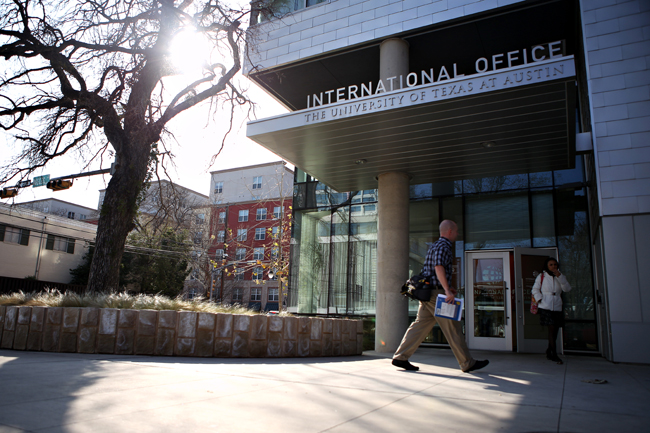After terrorist group al-Shabaab killed at least 147 people, most of whom were students, in Garissa, Kenya, the UT International Office quickly ensured that there were no students or UT faculty in the region during the attack.
The militant group attacked Garissa University, located near the Kenya–Somalia border, on Thursday
Although there are currently no UT-affiliated study abroad programs in Kenya, the University’s international office has different protocols for a variety of “risk situations” for students studying abroad, according to Fiona Mazurenko, public affairs specialist at the International Office.
“When we heard of the news going on in Kenya, there was immediately checking of databases and everything to make sure we didn’t have anybody on the ground,” Mazurenko said.
The UT International Office is well prepared to deal with emergency situations, Mazurenko said.
“If there was somebody there, we would work with our partners on the ground to find the student — we would reach out to them directly,” Mazurekno said. “We would reach out to the emergency contacts to locate them and make sure that they were safe and had a plan in case they needed one.”
UT has evacuated students from their study abroad programs in the past. The University evacuated students in certain areas of the Middle East during the Arab Spring, as well as students in Japan after the 2011 tsunami that left more than 15,000 dead, according to Gabriela Rios, international risk outreach coordinator at the International Office.
Last year, administrators for Russian Express, a language and culture program, canceled the part of the program that normally takes place in Kiev, Ukraine, after political unrest erupted in the country. The program took students to Irkutsk, Russia, located in Siberia, instead.
Rios said the International Office is prepared to work with any country to make sure student security is not compromised.
“In December, there was that shooting in Australia, and there were students there at the time, so we went through our normal protocol to work with our partners on the ground and to get details about the situation and also to reach out to all the students to make sure they were safe,” Rios said.
Because of the heightened risk traveling in certain areas presents, UT has a restricted regions list for its international programs. Some of these restricted regions include Egypt, Haiti, India, Israel, Russia, Peru and Ecuador. No student, faculty or staff member can be required to travel to a country on the list.
A country’s placement on the restricted regions list can come about as the result of a number of factors, including U.S. Department of State travel warnings and Centers for Disease Control and Prevention health rankings.
Emma Hines, environmental science and geography sophomore, has traveled to Ecuador — which is on the restricted list — as a study-abroad student and plans to go back with a UT Maymester group.
She said she feels UT is well prepared to take care of its students and wouldn’t be sending them abroad otherwise.
“When I studied abroad last summer, they made us complete some safety modules online and read a packet of information about general and personal safety,” Hines said “I was nervous last summer before going to Ecuador but never for safety reasons.”
If a student does get caught in the middle of a dangerous situation and has to come home, once they are safe, they will work with the office to determine which of the course credits they were working toward can be granted, Rios said.
“We do everything we can to give the student a smooth transition,” Rios said. “It depends on what type of class they’re in, what type of credit they’re receiving, how deep into the semester they are [and] what kind of course work they’re doing.”





















